Manufacturing with Robots
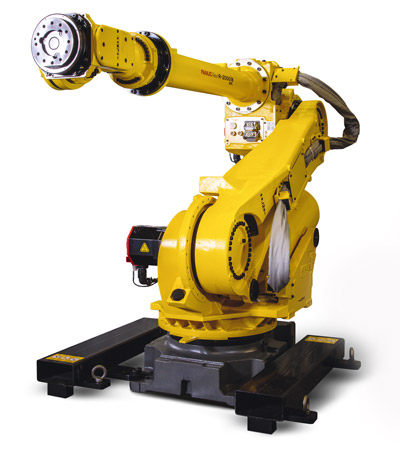
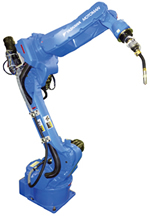
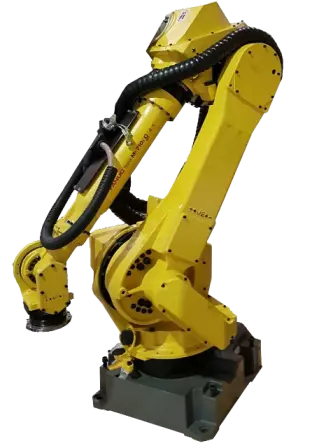
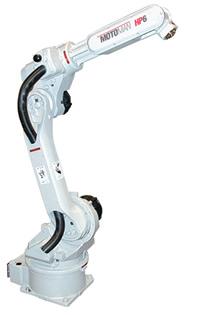
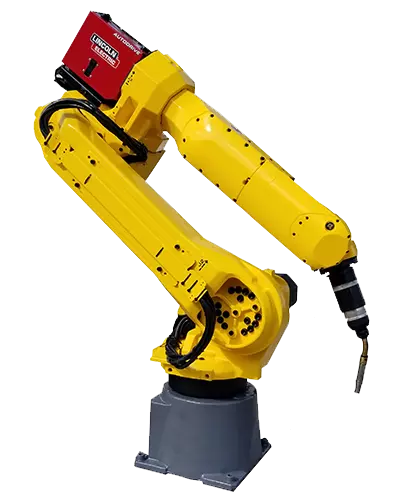
Industrial robots have been used to automate manufacturing processes since the 1960s. While robots were first introduced to manufacturing as a means to supplement manual labor, today robotic automation is a necessity for manufacturing. Increasing worker shortages, rising production costs, and global competition have led to the need and rapid growth of industrial robots in manufacturing. Articulated robots are being implemented in factories around the world.
One of the biggest hinderances to robotic automation was the cost. Fortunately, improved technology has lowered the price of industrial robots along with the expansion of the used robot market. Industrial robots are no longer only for large corporations, as small and medium manufacturers can now afford to automate as well. Used robots like the FANUC R-2000ic are significantly less expensive than brand new robots. While the development of collaborative robots and small robots also makes automating with robots more affordable.
How are Industrial Robots Used in Manufacturing?
Industrial robots streamline manufacturing by maximizing efficiency. Industrial robots may be implemented to automate certain portions of a manufacturing process for a semi-automated production or they may be implemented to automate the entire production process for fully automated manufacturing. Fully automated manufacturing is also referred to as lights-out manufacturing as productions can essentially run twenty-four hours a day. Technologies such as robotic vision systems, force sensors, collision detection, and offline programming have given robots greater autonomy, making it possible to run factories solely with robots. Many manufacturers are now transitioning from a semi-automated method to the lights-out approach.
What Types of Robots are Used in Manufacturing?
Several different types of robots are used in manufacturing. The most common type is the articulated six axis robot as it is incredibly versatile. Most articulated robots can automate multiple applications including the FANUC M-20ia. Delta, SCARA, and gantry are other popular types of robots used in manufacturing. Collaborative robots are also becoming common in manufacturing as they can directly assist workers.
What Industries are Manufacturing with Robots?
Industrial robots are being used in numerous industries from those with traditional industrial settings to those outside of industrial environments. Robots first started manufacturing in the automotive industry and today they are still the largest user of industrial robots. The ABB 6640 is frequently used by automotive manufacturers to weld car frames. Aerospace, metal and machinery, warehousing, oil and gas, and construction are other industries automating manufacturing with robots. Non-industrial sectors implementing robotic automation include the electronics, medical device, food, and pharmaceutical industries.
What Manufacturing Applications are being Automated with Robots?
The advancements of robotic technology have allowed for industrial robots to be able to automate most manufacturing applications. Robots by themselves are best for automating repetitive tasks but adding a vision system or sensors allows for the automation of tasks with greater variables and complexities. Common applications for robots in manufacturing include automated arc welding, assembly, packaging, palletizing, part transfer, painting, material removal, finishing, and dispensing. The Yaskawa Motoman MH24 is ideal for automating material handling processes. While the FANUC Arcmate 120ic can automate arc welding applications. Newer applications for industrial robots in manufacturing include inspection, 3D printing, and training.
Robots Done Right is the place to start when it comes to used robots. Contact us if you are interested in buying or selling a used robot.




